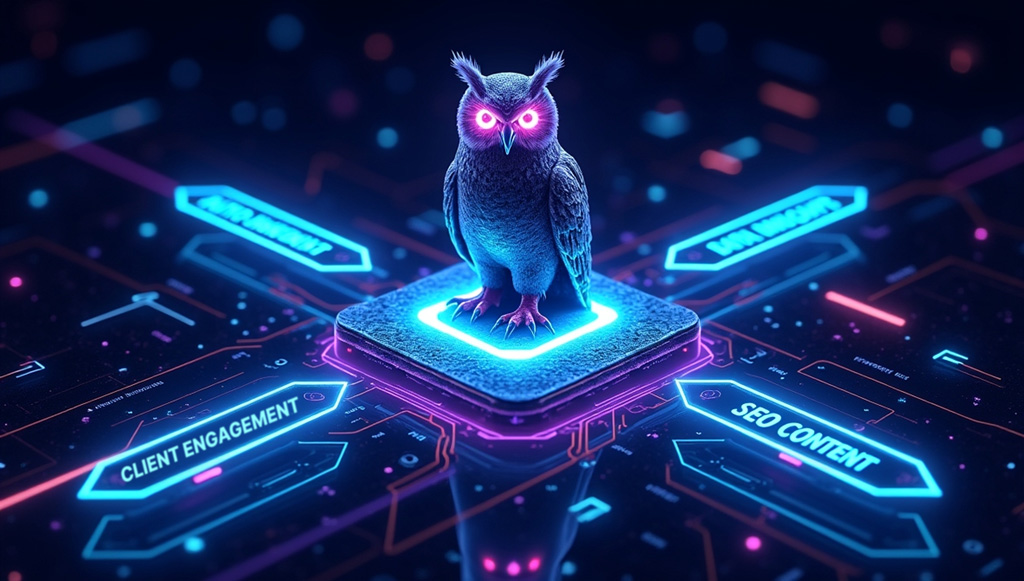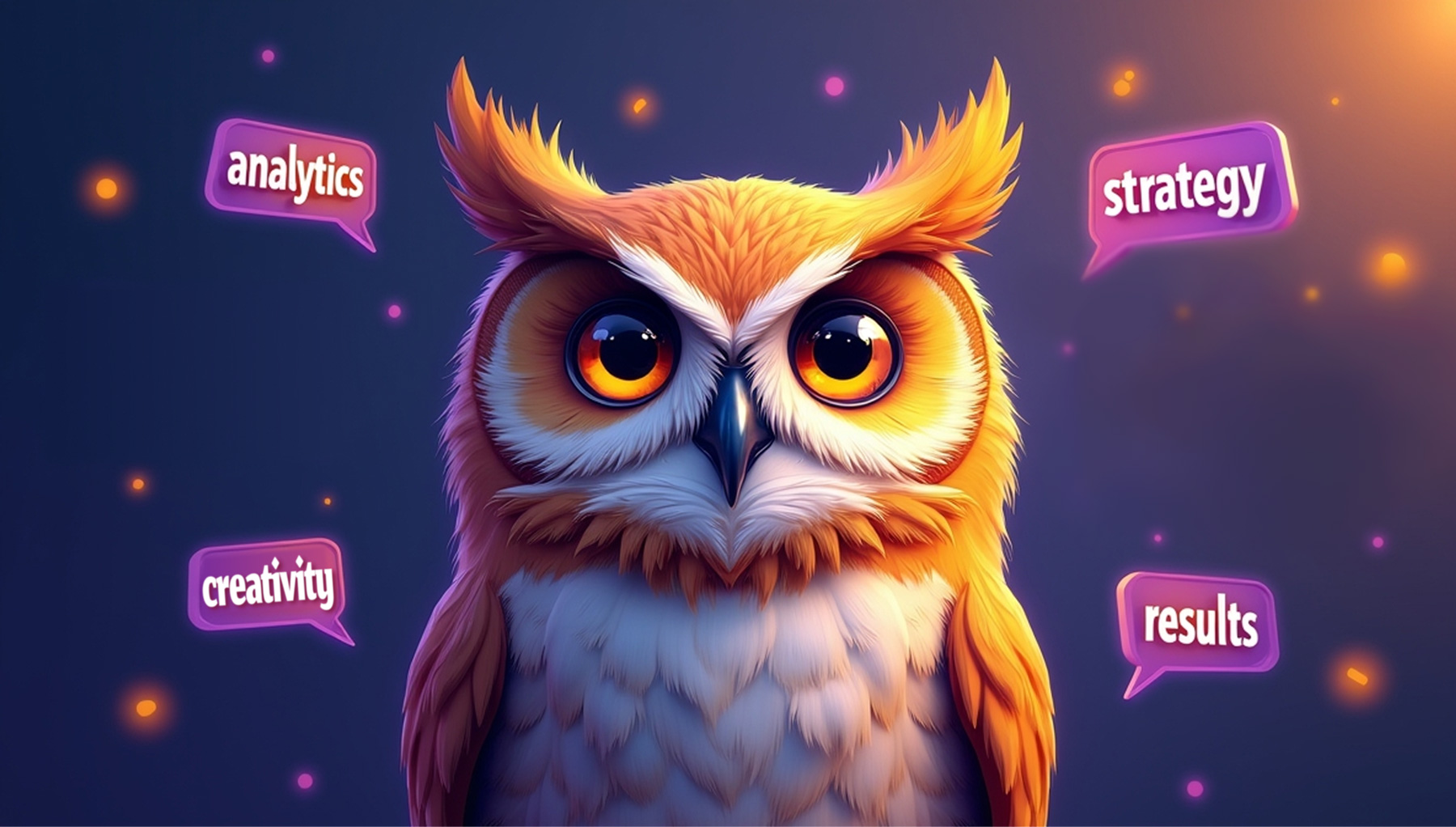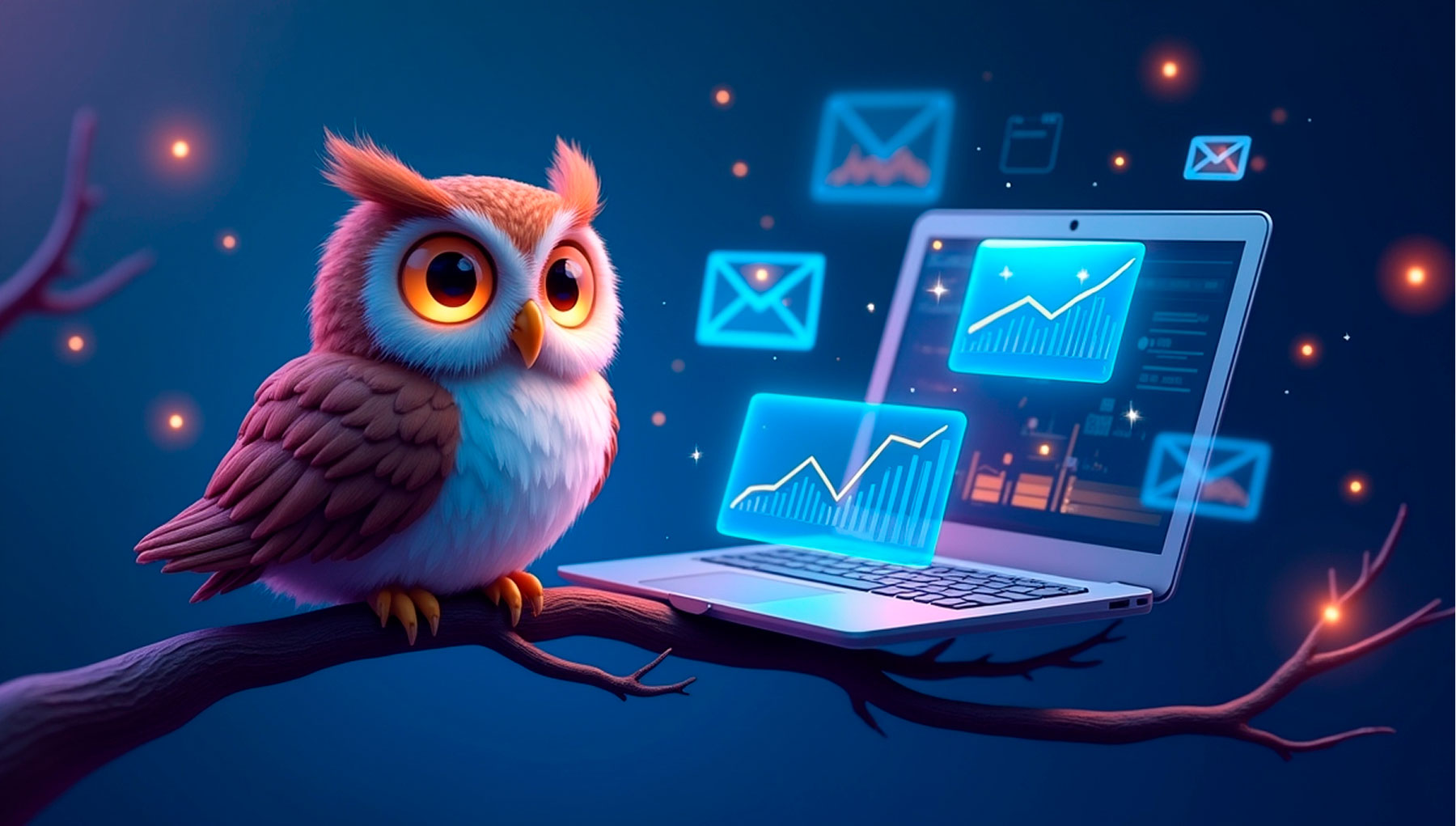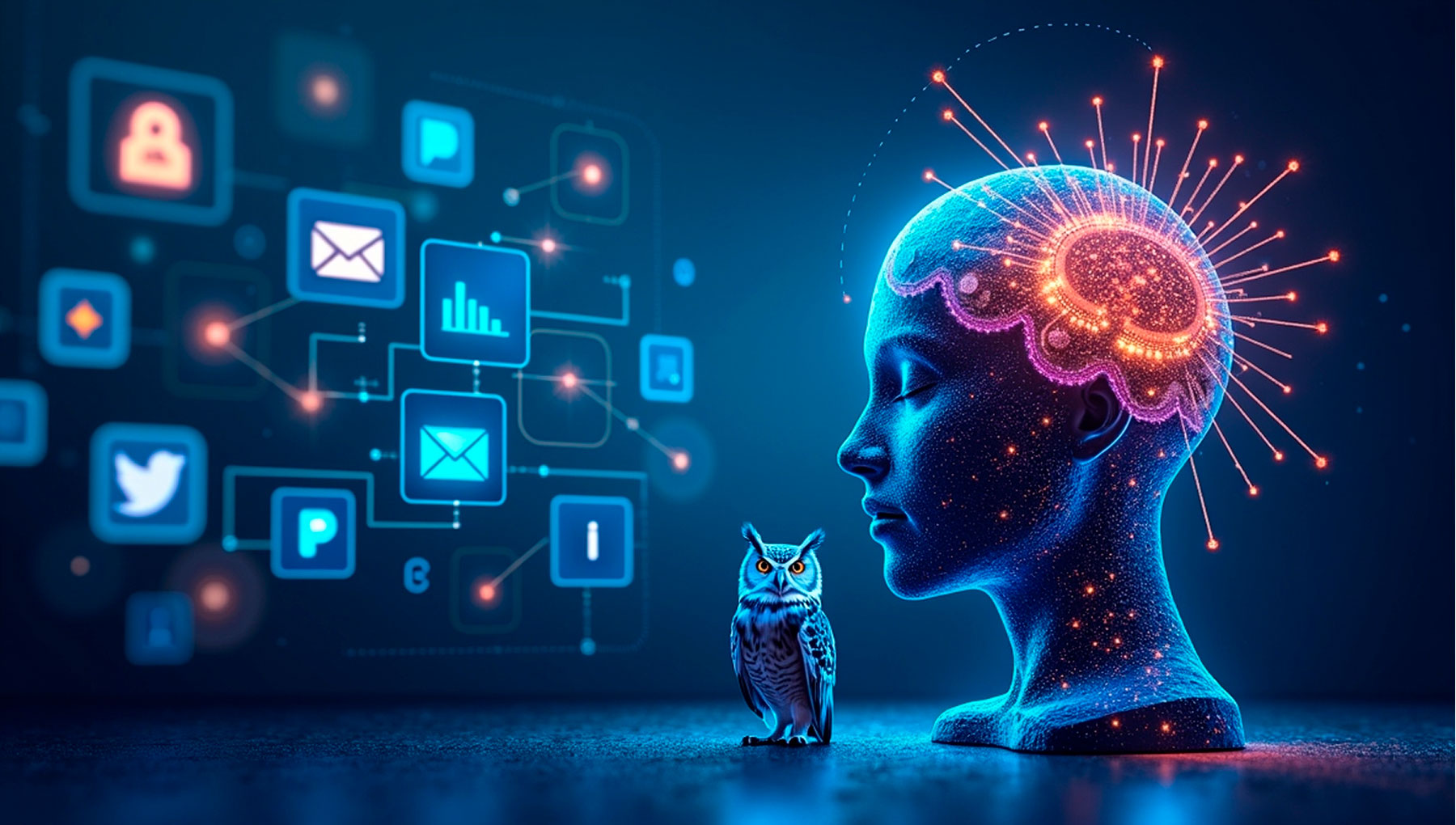The adoption of artificial intelligence (AI) in B2B marketing is revolutionising how companies approach their strategies, improve client experiences, and drive sales. AI for B2B marketing has become a powerful asset for businesses seeking to enhance their marketing efforts, streamline processes, and gain insights from vast amounts of data. This article will explore why traditional B2B marketing methods are no longer sufficient, the core applications of AI, the benefits of integrating AI into marketing strategies, and successful case studies from leading companies. We will also discuss barriers to AI adoption and provide a roadmap for businesses looking to get started with AI in B2B marketing.
The shift: why traditional B2B marketing falls short
In the past, B2B marketing primarily relied on direct outreach, such as email campaigns, cold calls, and trade shows. While these methods have been effective to some extent, they are no longer sufficient in an increasingly competitive and data-driven market. Traditional B2B marketing often struggles with scalability, personalisation, and real-time responsiveness, which are essential for gaining a competitive edge.
The lack of automation in traditional methods means that marketers are frequently left with time-consuming tasks such as manual segmentation, lead qualification, and follow-ups. Additionally, as client expectations evolve, businesses must find ways to deliver highly personalised, timely, and relevant marketing messages. AI for B2B marketing solves these issues by leveraging data, automating processes, and providing real-time insights that help businesses stay ahead of their competitors. Leaders in the industry are increasingly relying on AI systems, like genAI, to deliver results faster and more efficiently.

For example, genAI allows companies to automatically generate personalised marketing content at scale, improving the efficiency of content creation and enhancing client engagement. By leveraging these AI resources, companies can stay ahead of the curve and meet the demands of modern buyers. This shift is critical for leaders looking to increase sales by enhancing their overall marketing strategy.
Core applications of AI
AI’s impact on B2B marketing is felt across several key functions, enabling businesses to enhance their marketing efforts. Below are some of the core applications of AI in B2B marketing:
1. Data-driven marketing
AI systems use advanced algorithms to process and analyse massive amounts of data. This capability allows businesses to identify trends, segment audiences, and optimise their marketing campaigns. By leveraging data, AI can provide marketers with actionable insights that inform their decisions and drive more targeted campaigns. These insights enable businesses to create tailored marketing messages that resonate with the intended audience, enhancing client engagement and increasing the likelihood of conversions.
AI’s ability to enhance service offerings through automation means marketers can better serve their clients by delivering messages and content tailored to specific interests. GenAI tools can analyse historical data to determine the best marketing strategies that improve campaign efficiency. Leaders in B2B marketing are leveraging genAI to craft hyper-targeted campaigns that maximise engagement, driving measurable results and increasing sales.
2. Lead generation and qualification
AI solutions can streamline lead generation by automating the process of identifying potential buyers. By analysing client behaviour and identifying key indicators of interest, AI can pinpoint leads who are more likely to convert. Once leads are identified, AI can assist in lead scoring, ensuring that sales teams focus their efforts on the most promising prospects.
Additionally, AI-driven chatbots can engage with visitors in real-time, qualify leads, and collect crucial information that can be used to personalise future marketing efforts. These chatbots enhance the functions of the marketing department, allowing businesses to focus on converting leads rather than spending time on unqualified ones.
Through AI, businesses can increase the productivity of their service teams, reducing time spent on administrative tasks and improving response rates. The automation of lead qualification ensures that B2B marketing teams can focus on high-value activities, resulting in more effective sales efforts.
3. Predictive analytics
AI-powered predictive analytics can help B2B marketers forecast future trends, client behaviour, and sales performance. By analysing historical data and recognising patterns, AI models can predict which leads are most likely to convert, what products or services will be in demand, and when clients are most likely to make purchasing decisions.
This predictive capability allows businesses to optimise their marketing strategies, focus their resources on the most lucrative opportunities, and ultimately boost sales. AI’s predictive functions help B2B marketers plan their campaigns effectively, offering timely and relevant content to target buyers. AI models have the potential to analyse massive datasets in real-time, guiding leaders in determining how best to target potential customers and increase sales.
4. Personalisation at scale
Personalisation has become a critical component of modern marketing. AI can enable businesses to deliver personalised experiences at scale by tailoring content, product recommendations, and email messages to individual clients. AI systems can analyse client preferences, browsing behaviour, and past interactions to deliver highly relevant and timely content that resonates with the audience.
With genAI tools, businesses can offer hyper-personalised content and offers at scale, optimising engagement and increasing conversion rates. This level of personalisation leads to higher engagement, increased client satisfaction, and greater brand loyalty. Additionally, AI enhances customer service by delivering timely, relevant, and personalised interactions that make clients feel valued. Leaders are increasingly using AI-driven personalisation to not only improve engagement but also boost their sales potential.
AI can also be used to predict future purchasing decisions, helping businesses anticipate buyer needs and offer the right products or services at the right time. Through genAI, companies can dynamically adjust their messaging based on real-time data, ensuring that every client receives the most relevant content.
5. Content creation and optimisation
AI-driven content creation solutions, such as generative AI (genAI), can help businesses streamline their content marketing efforts. By using AI to generate blog posts, social media updates, and product descriptions, B2B marketers can save time and focus on strategic tasks. Additionally, AI systems can optimise content for SEO, ensuring that it ranks higher in search engine results pages (SERPs) and reaches the right audience.

Businesses can take advantage of genAI to produce high-quality, SEO-optimised content quickly. This helps companies manage the increasing demand for content while improving their organic search rankings. AI content tools also provide valuable insights into how content can be better structured and distributed, thus improving marketing service offerings. Leaders in content marketing are leveraging genAI tools to create vast quantities of high-quality content with minimal effort. This ability to scale content creation efficiently is a significant advantage for companies looking to increase sales.
Benefits from integration
Integrating AI into B2B marketing offers several key benefits that can help businesses achieve better results, including:
1. Improved efficiency
AI automates repetitive tasks, such as data collection, lead qualification, and content creation, freeing up time for marketers to focus on more strategic activities. By automating these processes, businesses can improve operational efficiency and reduce the time spent on manual tasks. This allows marketing teams to allocate their time and resources to high-priority tasks that require more creativity and innovation.
The ability to integrate genAI into marketing operations boosts efficiency and provides businesses with the systems needed to enhance their marketing functions at scale. This automation also reduces human error, allowing for more accurate and efficient marketing processes.
2. Enhanced client experience
AI-powered chatbots and personalised content delivery ensure that clients receive the right information at the right time. By providing more relevant and timely interactions, businesses can enhance the overall client experience, leading to higher satisfaction rates and increased loyalty.
This level of service creates an ecosystem where clients can interact with the business across multiple channels, each interaction enhanced by the capabilities of AI-powered systems. AI’s ability to respond quickly and intelligently to client queries provides immediate value to businesses looking to improve their service.
3. Better decision-making
AI enables businesses to make data-driven decisions by providing insights that are backed by real-time data analysis. This reduces the risk of making decisions based on intuition or incomplete information, leading to better outcomes and a higher return on investment (ROI). AI’s ability to inform decision-making makes it an indispensable tool for industry leaders seeking to optimise their marketing strategies and increase sales.
4.Scalability
AI-powered marketing systems can handle large amounts of data and scale with the growth of a business. As a company expands, AI tools can continue to process and analyse data, ensuring that marketing efforts remain effective as the client base grows. This makes AI solutions ideal for businesses to expand their operations while maintaining efficient marketing processes.
5. Cost savings
By automating tasks and optimising marketing campaigns, businesses can reduce their marketing costs. AI allows companies to make better use of their resources, ensuring that every dollar spent on marketing contributes to higher sales. AI-driven optimisation means businesses are able to focus their marketing spend on the highest-return opportunities, rather than casting a wide net and hoping for the best.

Case studies / success stories
Several leading companies have successfully integrated AI into their B2B marketing strategies and reaped the rewards. Here are a few examples:
1. IBM Watson
IBM Watson, a leading AI technology provider, uses its own AI solutions to enhance B2B marketing. By leveraging AI for predictive analytics, IBM Watson can identify which leads are most likely to convert and optimise its marketing efforts accordingly. The company also uses AI-powered chatbots to engage with clients in real-time, answer questions, and collect valuable insights. IBM’s success highlights how leaders in technology are shaping the future of AI-driven marketing, enhancing their sales outcomes.
2. HubSpot
HubSpot, a popular marketing automation platform, uses AI to help businesses generate leads, nurture client relationships, and optimise their marketing campaigns. HubSpot’s AI systems allow marketers to automate tasks such as lead scoring, email marketing, and content creation, saving time and improving efficiency. HubSpot’s use of genAI to personalise campaigns has proven effective in boosting sales and improving overall customer engagement.
3. Salesforce
Salesforce has integrated AI into its Customer Relationship Management (CRM) platform with its Einstein AI technology. Einstein AI helps businesses gain deeper insights into client behaviour, automate tasks, and predict which leads are most likely to convert. By using AI, Salesforce helps businesses streamline their sales processes and improve their marketing ROI.
Barriers to adoption and how to overcome them

Despite the numerous benefits of AI in B2B marketing, some businesses face barriers to adoption. These include:
1. Cost
The initial investment in AI tools can be significant, particularly for small businesses. However, the long-term benefits of AI, such as improved efficiency, cost savings, and better decision-making, often outweigh the upfront costs. Businesses can overcome this barrier by starting with smaller, more affordable AI solutions and gradually scaling up as they see the benefits.
2. Lack of expertise
Implementing AI in B2B marketing requires a certain level of expertise in data analysis, machine learning, and AI systems. Businesses that lack in-house expertise may need to invest in training or hire external consultants to help with implementation. However, many AI tools are becoming increasingly user-friendly, making it easier for non-experts to integrate AI into their marketing efforts.
3. Data privacy concerns
As AI relies heavily on data, businesses must ensure that they comply with data privacy regulations, such as the General Data Protection Regulation (GDPR). By implementing robust data privacy policies and ensuring transparency in data usage, businesses can overcome this concern and build trust with their clients.
How to get started: a B2B AI marketing roadmap
Getting started with AI in B2B marketing involves several key steps:
1. Define objectives
Before implementing AI, businesses should define their marketing objectives. Whether it’s generating leads, improving client engagement, or increasing sales, having a clear goal will help guide the AI integration process.
2. Choose the right AI solutions
There are many AI systems available for B2B marketing, each serving different functions, such as lead generation, content creation, and predictive analytics. Businesses should evaluate their needs and select the tools that align with their objectives.
3. Collect and analyse data
AI systems require data to function effectively. Businesses should gather and analyse data from various sources, such as website traffic, client interactions, and social media, to feed into AI systems.
4. Test and optimise
Once AI tools are integrated, businesses should continually monitor their performance and optimise their strategies. This may involve tweaking algorithms, refining client segments, and testing different content strategies to see what works best.
Future trends in AI for B2B marketing

As AI continues to evolve, several trends are expected to shape the future of B2B marketing:
1. AI-powered content generation
Generative AI (genAI) tools are becoming increasingly sophisticated and will play a significant role in automating content creation. In the future, businesses will be able to generate high-quality, personalised content at scale, reducing the time spent on manual content creation.
2. Enhanced client insights
AI will continue to improve businesses’ ability to gain deeper insights into client behaviour and preferences. This will enable businesses to create more targeted marketing campaigns and improve their client relationships.
3. Increased automation
AI will drive even greater automation in B2B marketing, allowing businesses to optimise their marketing processes from start to finish. From lead generation to content creation, AI will automate more aspects of marketing, making it faster and more efficient.
Conclusion
AI for B2B marketing is transforming the way businesses approach their marketing strategies. By leveraging AI’s capabilities in data analysis, lead generation, predictive analytics, and personalisation, businesses can enhance their marketing efforts, improve client engagement, and ultimately drive sales. While there are challenges to adoption, the long-term benefits of integrating AI into B2B marketing are undeniable. By following the right roadmap and staying ahead of emerging trends, businesses can fully harness the power of AI to boost their marketing results.
Effective AI tools
AI post generator for Instagram
Transform your Instagram with our AI manager: create eye-catching images, captions and schedule posts at the optimal time for maximum impact!
AI Ads Manager
AI UA Performance Manager is a game changer in online advertising. It generates a variety of advertising creatives and texts, launches campaigns in Meta and Google, and continuously optimises them for maximum effectiveness within your budget.
AI LinkedIn post generator
Automatically generate and schedule content tailored to your audience’s preferences. A seamless, time-saving solution that requires no extra input or effort.
AI marketing for small business
Supercharge your small business with AI! Smarter ads, happier customers, and more sales—all on autopilot.
AI SMM Manager
Whether you’re a small business owner or a large enterprise, an AI SMM manager can help you stay competitive in the ever-evolving world of social media.
Shorten ad creation from hours to seconds and start growing your revenue now!



